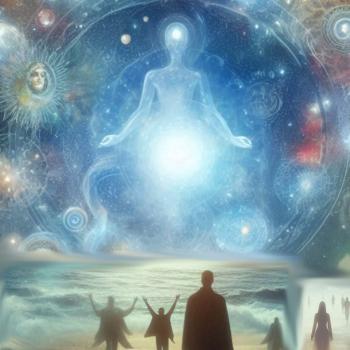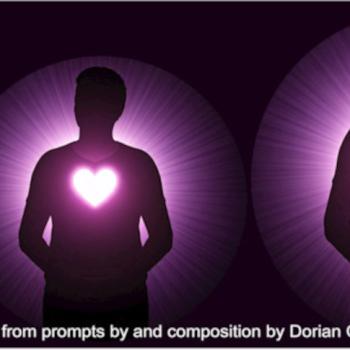Practical spirituality series
What do we believe, and how does this affect us? Every religion, spirituality, and philosophy has different beliefs within it. Some are counterproductive, while others are beneficial.
The Apostle Paul said to focus on the positive
“Finally, brethren, whatever is true, whatever is honorable, whatever is right, whatever is pure, whatever is lovely, whatever is of good repute, if there is any excellence and if anything worthy of praise, dwell on these things. The things you have learned and received and heard and seen in me, practice these things, and the God of peace will be with you.” Philippians 4:8,9 (NASB)
God of peace is noteworthy. A peaceful frame of mind is essential to appreciating life.
I responded to an individual whose philosophical belief is that life is suffering. He wondered why we should subject ourselves to it.
This is an intriguing question based on speculation in philosophy. We don’t know why anyone is here. Suffering is an assumption. Many people live their lives with minimal suffering, so the premise that life is suffering doesn’t hold water. We also appreciate that for most people, life has its challenges, but most aren’t miserable.
Philosophical beliefs are fungible. They are easily replaced by other beliefs.

In the suffering image, note that the person is strangling themselves. What we think can do this to us. Philosophy is best viewed as a set of tools for examining life, not as a philosophy of life. Philosophy can examine but ultimately prove nothing.
Life brings what it brings, and we may theorize about why, but we don’t know for certain. Life weaves a broad tapestry that differs for everyone and takes a lifetime.
Avoiding existential crisis
We need frameworks for understanding and controlling life to deal with it. If we have no framework, we end up in an existential crisis where nothing has meaning and we lack purpose.
We have to determine our purpose by seeking. By this I mean we have to live life and try to do it meaningfully. Seek meaning in what we do and in our relationships.
That being said, I believe the purpose of mine is in three things: to live (experience), love, and learn. We learn from loving others, being loved, and experiencing.
Finding meaning and purpose is likely to take some time, so please be patient. It is common for us to be uninterested in others and our vocations at first. We usually have to invest ourselves in them.
Avoiding “Houston, we have a problem”
Astronauts in space are not entirely helpless when their craft fails in some way. But some problems require ground control specialists to analyze and help resolve the problem.
Are we like astronauts? In our lives, if we blame God for everything that happens to us, we act like puppets on a stage and avoid all responsibility. Zombies. We need to act more like astronauts and analyze and solve problems. We need to then get others involved when it’s beyond us to navigate.
People who feel powerless and perceive themselves as victims are often depressed. Often at some point they rebel against their faith or strike out at God or others.
We’re not alone
We don’t exist in this world in a vacuum. We’re physical beings in a physical world full of other physical beings. We have relationships with others. It’s often in these relationships that we find meaning and purpose.
We often find meaning and purpose in what we do in a larger sense. Most of us want to feel connected to something beyond ourselves. Some find this connection in spirituality, religion, causes, work, etc. For example, doctors treat people and make them well, and most find this meaningful, purposeful, and fulfilling. Another example: I write to entertain and inform in beneficial ways.
There are better frameworks for interpreting life
Happiness is also related to how we view the world and others. Finland is the happiest country in the world, and this is very possibly because individuals there have high levels of social trust.
Social trust can be ruined by only seeing the negative. Seeing the good in others rather than looking for the bad shapes our attitude towards life.
Other negative or positive things also impact our attitude, such as our expectations about events or waiting for the other shoe to drop. Most situations, at minimum over 80%, work out okay. They are nothing to worry about and shouldn’t spoil our attitude about our lives.
Life is about suffering, if that’s what we believe. We may actually manifest this. If we believe it’s about good, we’re more likely to have good in our lives. At least that will be our focus and attitude, and perhaps we will manifest this as well.
Many regard positive psychology, humanism, spirituality, religion, and mindfulness as advantageous for living happier lives.
There are certainly aspects of many religions that emphasize suffering. For example, we reap what we sow. Or do things that hurt ourselves or others, and it haunts us. But in every religion, it’s a choice what we choose to emphasize.
The purpose of religion is also to transform individuals and the world for the better. It can be about spiritual growth. Understanding our impact on ourselves and others is how we grow. Spiritual growth is a value and shouldn’t be interpreted as suffering but instead learning experiences.
We need to examine our beliefs, whether philosophical, religious, or whatever their root. Do they serve us well? Or would emphasizing other beliefs within our religion or spiritual framework serve us better?
What would you do?
There is always a Probability Space in which to think and discuss interpreting what our lives are about and finding meaning and purpose individually. When things aren’t working for us or making us miserable, it’s time for something to happen. The moment is pregnant with possibility. The need is huge. What can you do? This is practical spirituality.
Can we find better ways of looking at our lives? What might those ways be?
Some things to consider:
How are our beliefs affecting us? Are they making us feel hopeless, powerless, and miserable victims? Are they limiting our ability to move forward in our lives and our spiritual growth? Is it time to take control of our lives instead of being hapless zombies?
What is life about? Is it to experience, love, and learn?
Most of us want to feel connected to something beyond ourselves. Can we do this through investing in others or causes. In my experience, investing in things and others can take years to be meaningful.
Some find this deeper connection with something larger than ourselves in spirituality, religion, causes, work, etc.
Is it possible to find more beneficial ways of looking at things by focusing on positive psychology, humanism, spirituality, religion, and mindfulness? Changing our attitude about life will likely change how we feel and help us find opportunities to have better lives.
- Dorian
Our answer is God. God’s answer is us. Together we make the world better.














